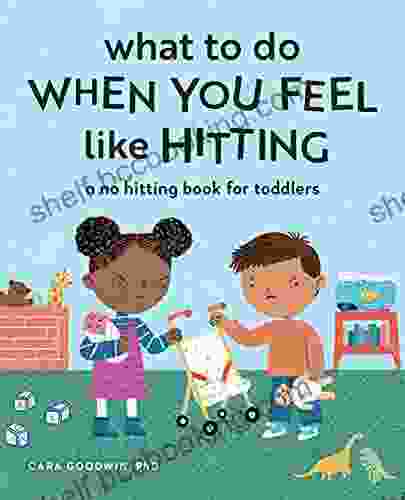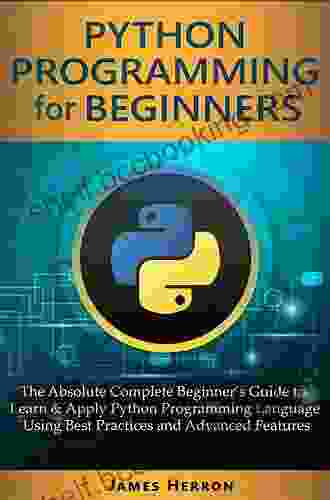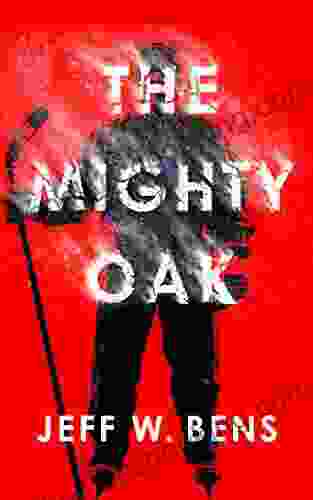What To Do When You Feel Like Hitting

Are you struggling with anger and aggression? Do you feel like you're always on the verge of hitting someone? If so, you're not alone. Millions of people struggle with anger management issues, and it can be a very difficult thing to deal with.
But there is hope. With the right help, you can learn how to control your anger and aggression, and build healthier relationships with the people around you.
4.7 out of 5
| Language | : | English |
| File size | : | 34969 KB |
| Screen Reader | : | Supported |
| Print length | : | 50 pages |
| Lending | : | Enabled |
In this book, you will learn:
- The causes of anger and aggression
- The different types of anger and aggression
- The consequences of anger and aggression
- How to identify your anger triggers
- How to develop coping mechanisms for anger and aggression
- How to build healthier relationships with the people around you
If you're ready to take control of your anger and aggression, then this book is for you.
What causes anger and aggression?
Anger is a normal human emotion. It's a response to feeling threatened, frustrated, or wronged. Aggression is a behavior that is intended to cause harm to another person or thing. While anger is a normal emotion, aggression is not. Aggression can be physical, verbal, or even psychological.
There are many different factors that can contribute to anger and aggression, including:
- Genetics: Some people are more likely to be aggressive than others due to their genes.
- Neurochemistry: The levels of certain neurotransmitters in the brain can affect aggression.
- Personality: Certain personality traits, such as impulsivity and irritability, can make someone more likely to be aggressive.
- Life experiences: People who have been exposed to violence or abuse are more likely to be aggressive.
- Mental health conditions: Certain mental health conditions, such as depression and anxiety, can increase the risk of aggression.
What are the different types of anger and aggression?
There are two main types of anger: reactive anger and proactive anger.
- Reactive anger is a response to a specific event or situation. It is usually short-lived and is often accompanied by feelings of frustration or rage.
- Proactive anger is planned and deliberate. It is often used to achieve a specific goal, such as gaining power or control.
There are also two main types of aggression: physical aggression and verbal aggression.
- Physical aggression is any behavior that is intended to cause physical harm to another person or thing. This includes hitting, punching, kicking, and shoving.
- Verbal aggression is any behavior that is intended to cause emotional harm to another person. This includes name-calling, insults, and threats.
What are the consequences of anger and aggression?
Anger and aggression can have serious consequences, both for the individual and for the people around them.
For the individual, anger and aggression can lead to:
- Relationship problems
- Job loss
- Legal problems
- Health problems
For the people around them, anger and aggression can lead to:
- Physical injury
- Emotional distress
- Relationship problems
- Job loss
How to identify your anger triggers
The first step to controlling your anger and aggression is to identify your anger triggers. These are the situations or events that make you feel angry or aggressive.
Once you know your anger triggers, you can start to avoid them or develop coping mechanisms for dealing with them.
Some common anger triggers include:
- Feeling threatened
- Feeling frustrated
- Feeling wronged
- Being criticized
- Being ignored
How to develop coping mechanisms for anger and aggression
Once you know your anger triggers, you can start to develop coping mechanisms for dealing with them.
Some helpful coping mechanisms include:
- Taking a break: If you feel yourself getting angry, take a break from the situation. Go for a walk, listen to music, or read a book.
- Talking to someone: Talk to a friend, family member, or therapist about how you're feeling. Talking about your anger can help you to process it and develop healthier coping mechanisms.
- Exercising: Exercise is a great way to release pent-up anger and frustration. Go for a run, swim, or bike ride.
- Writing: Writing about your anger can help you to understand it and develop healthier coping mechanisms. Keep a journal or write letters to yourself or to the people who have made you angry.
- Meditation: Meditation can help you to calm down and relax. There are many different types of meditation, so find one that works for you and practice it regularly.
How to build healthier relationships with the people around you
If you struggle with anger and aggression, it's important to build healthier relationships with the people around you. This will help you to avoid conflicts and maintain positive relationships.
Here are some tips for building healthier relationships:
- Communicate effectively: Talk to your loved ones about your feelings and needs. Use "I" statements to express your feelings and avoid blaming others.
- Set boundaries: Let your loved ones know what behaviors are unacceptable and what consequences will occur if they cross those boundaries.
- Be forgiving: Everyone makes mistakes. If someone wrongs you, try to forgive them. Holding on to anger will only hurt you in the long run.
- Seek professional help: If you're struggling to control your anger and aggression on your own, seek professional help. A therapist can help you to understand your anger and develop healthier coping mechanisms.
Anger and aggression are common problems, but they can be overcome. With the right help, you can learn how to control your anger and aggression, and build healthier relationships with the people around you.
If you're struggling with anger and aggression, don't give up. There is hope. With the right help, you can take control of your anger and aggression, and build a better life for yourself and the people around you.
4.7 out of 5
| Language | : | English |
| File size | : | 34969 KB |
| Screen Reader | : | Supported |
| Print length | : | 50 pages |
| Lending | : | Enabled |
Do you want to contribute by writing guest posts on this blog?
Please contact us and send us a resume of previous articles that you have written.
 Book
Book Novel
Novel Page
Page Chapter
Chapter Text
Text Story
Story Genre
Genre Reader
Reader Library
Library Paperback
Paperback E-book
E-book Magazine
Magazine Newspaper
Newspaper Paragraph
Paragraph Sentence
Sentence Bookmark
Bookmark Shelf
Shelf Glossary
Glossary Bibliography
Bibliography Foreword
Foreword Preface
Preface Synopsis
Synopsis Annotation
Annotation Footnote
Footnote Manuscript
Manuscript Scroll
Scroll Codex
Codex Tome
Tome Bestseller
Bestseller Classics
Classics Library card
Library card Narrative
Narrative Biography
Biography Autobiography
Autobiography Memoir
Memoir Reference
Reference Encyclopedia
Encyclopedia Sarah Pink
Sarah Pink Paul Midler
Paul Midler Jared Benson
Jared Benson Jane Hardy
Jane Hardy Jan Cullinane
Jan Cullinane Jay Boyce
Jay Boyce Jane Briggeman
Jane Briggeman Jane Dunnewold
Jane Dunnewold Janja Lalich
Janja Lalich Tim J Wise
Tim J Wise Jeff Guinn
Jeff Guinn Leonard Peltier
Leonard Peltier Janet Gleeson
Janet Gleeson Mimi Schwartz
Mimi Schwartz Robin Jones Gunn
Robin Jones Gunn Jeff Newman
Jeff Newman Jeff Hertzberg
Jeff Hertzberg Shaun L Griffiths
Shaun L Griffiths Jeff Davis
Jeff Davis Kristen E Gwinn
Kristen E Gwinn
Light bulbAdvertise smarter! Our strategic ad space ensures maximum exposure. Reserve your spot today!
 J.R.R. TolkienFollow ·9.1k
J.R.R. TolkienFollow ·9.1k Peter CarterFollow ·6.5k
Peter CarterFollow ·6.5k Julio CortázarFollow ·12.6k
Julio CortázarFollow ·12.6k Louis HayesFollow ·8.2k
Louis HayesFollow ·8.2k Ian PowellFollow ·14.4k
Ian PowellFollow ·14.4k Billy FosterFollow ·8.8k
Billy FosterFollow ·8.8k Roald DahlFollow ·17.6k
Roald DahlFollow ·17.6k Lawrence BellFollow ·19k
Lawrence BellFollow ·19k
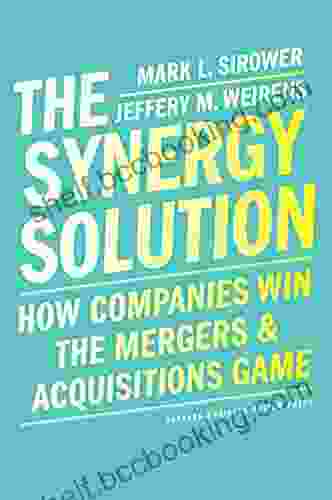
 Carlos Drummond
Carlos DrummondHow Companies Win the Mergers and Acquisitions Game:...
In today's...
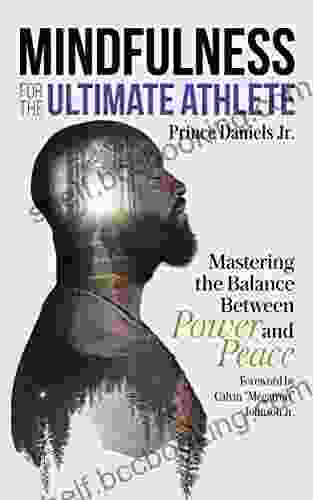
 Craig Blair
Craig BlairMastering The Delicate Balance Between Power And Peace
In today's ever-evolving world, the interplay...

 Wade Cox
Wade CoxUnveiling the Zen of Golf: A Journey to Inner Mastery
: The Harmony of Mind,...
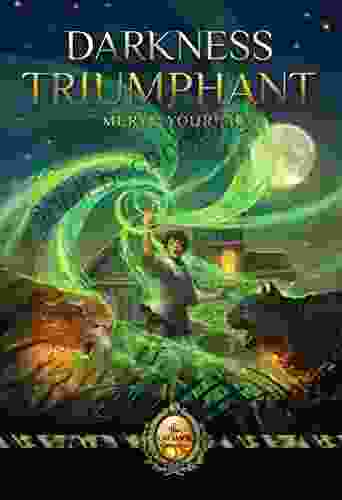
 Gerald Bell
Gerald BellDarkness Triumphant: Three of the Catmage Chronicles
Synopsis ...
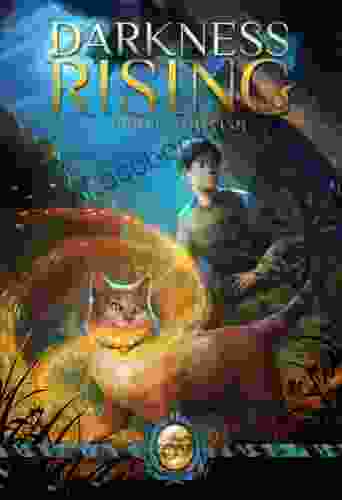
 Henry James
Henry JamesDarkness Rising: One of the Catmage Chronicles
A Captivating Fantasy Adventure...
4.7 out of 5
| Language | : | English |
| File size | : | 34969 KB |
| Screen Reader | : | Supported |
| Print length | : | 50 pages |
| Lending | : | Enabled |


